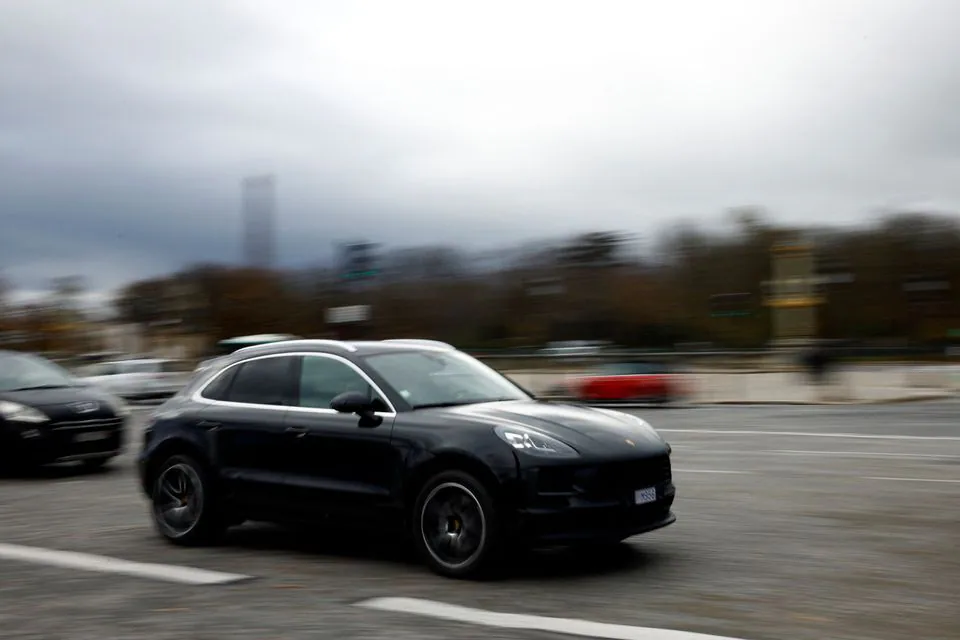
In a bold move to reshape the urban landscape, Paris is setting its sights on Sports Utility Vehicles (SUVs) by proposing a hike in parking fees for these heavy cars within the city center. The French capital, having previously banned rental scooters following a citizens' vote in September, is gearing up for another local referendum on February 4th, this time addressing "the place of SUVs in the capital."
The initiative aims to discourage the use of large vehicles in a city known for its narrow streets and historic charm. Parisian City Hall, faced with the challenge of distinguishing SUVs from other models, plans to implement higher parking fees for thermal engine cars weighing over 1.6 tonnes and electric vehicles over two tonnes. To determine a car's weight, license plate scanners will be deployed, linking the plate to its model and weight.
Deputy Mayor David Belliard, an ecologist, highlighted the need to reduce both the number and size of cars in the city. "We will submit to a vote the question of how much space there should be for this type of vehicle in Paris," he stated. This move follows a broader strategy under Mayor Anne Hidalgo, who has consistently raised pressure on drivers by increasing parking costs, phasing out diesel vehicles, and expanding the bicycle lane network.
Belliard's stance reflects a societal concern beyond mere urban planning; it's a statement against what he sees as a symbol of excess and a call to challenge the behavior of those privileged enough to afford larger, more polluting vehicles. "The SUV vote is to tell all those who continue to use their private cars because they're the richest: No! In a few years, in a few months, they won't be welcome in Paris with this type of behavior," he declared.
However, this move has not gone without criticism. Philippe Noziere, president of a car drivers' association, argues that the increase in weight and size of modern cars, including SUVs, is driven by considerations of safety and comfort. "Manufacturers have made huge efforts with these vehicles. Of course, this has translated into extra weight," he contended. Noziere's perspective sheds light on the ongoing debate regarding the practicality and safety features embedded in modern SUVs.
One Parisian resident, Henri Duret, echoed the sentiment against SUVs, considering them a symbol of a bygone era, one that consumes more fuel, pollutes more, and perpetuates a sense of social divide. "They are a symbol of another era ..., a symbol of crushing others," Duret remarked. His opinion reflects a broader societal shift, where environmental concerns and social equity converge to question the appropriateness of certain vehicles in an urban environment.
The proposal not only tackles the issue of SUVs in Paris but also challenges car manufacturers to reconsider their production strategies. Belliard stated that Paris aims to encourage car manufacturers to stop building SUVs, citing reasons such as their costliness, pollution levels, and unsuitability for congested city centers. This call goes beyond the local issue of parking fees; it resonates with a global conversation about the role of automobile manufacturers in shaping sustainable urban mobility.
As Paris navigates the complexities of this proposed measure, it prompts us to consider the broader implications for urban planning and societal values. Can a change in parking fees truly influence the behavior of those who can afford large vehicles, or does it risk creating a further divide between social classes? Will this initiative be a tipping point for other cities globally to reevaluate the role of SUVs in their urban landscapes?
In conclusion, Paris's move to challenge the dominance of SUVs in its city center is a multifaceted endeavor. It intertwines environmental considerations, societal values, and questions of urban planning. As the citizens' vote approaches, the world watches to see if this initiative will be a defining moment in the ongoing dialogue about the role of cars, particularly SUVs, in our cities.








